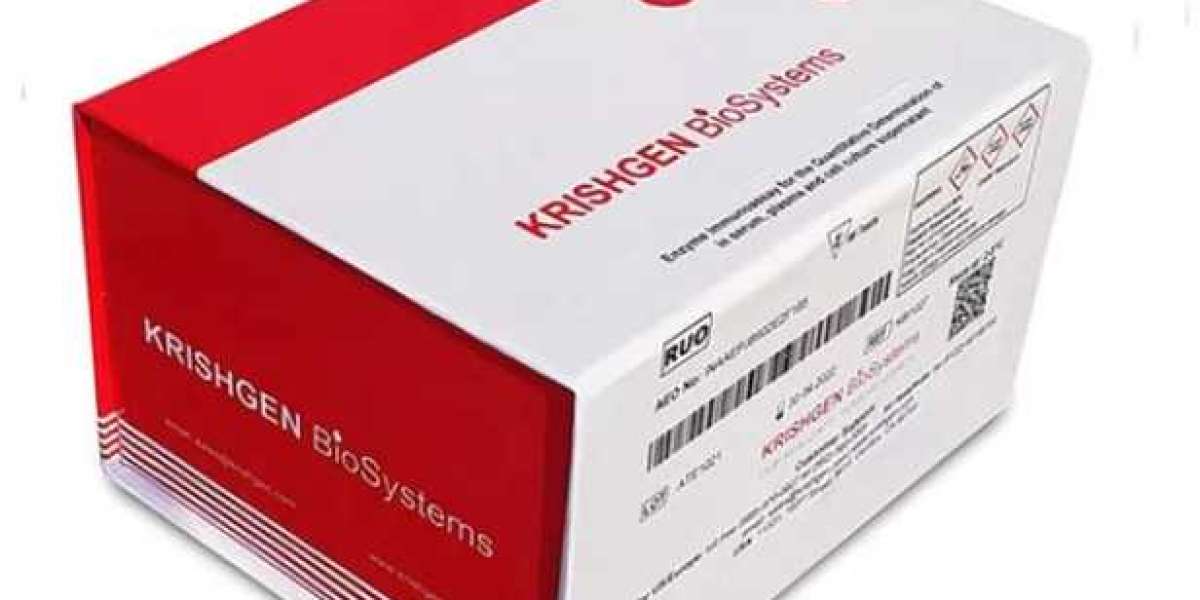Panitumumab, a monoclonal antibody used in cancer treatment, has become an essential part of targeted therapies, especially for colorectal cancer. To monitor its effectiveness and detect its levels in the bloodstream, the Panitumumab ELISA (Enzyme-Linked Immunosorbent Assay) test plays a crucial role. This assay offers clinicians a reliable method to measure the drug concentration and monitor patient response to treatment, improving the overall management of cancer therapy.
What is Panitumumab?
Panitumumab is a fully human monoclonal antibody that targets the epidermal growth factor receptor (EGFR). By binding to EGFR, panitumumab inhibits cell growth, leading to the suppression of tumor proliferation. This therapy is particularly effective in patients with metastatic colorectal cancer who do not have mutations in the KRAS gene. It represents a highly targeted approach to cancer treatment, offering hope for improved patient outcomes.
The Role of Panitumumab ELISA
The Panitumumab ELISA is a laboratory test designed to measure the concentration of panitumumab in the patient’s blood. It provides vital information about drug levels during the course of therapy, helping doctors make informed decisions about dosage and treatment adjustments.
The test works by using antibodies specific to panitumumab, which bind to the drug in the patient’s blood sample. The presence and amount of panitumumab are then quantified through a colorimetric reaction, offering a highly sensitive and specific measurement.
Why is Panitumumab ELISA Important?
- Therapeutic Drug Monitoring (TDM): Therapeutic drug monitoring is essential for managing cancer treatment effectively. By measuring panitumumab levels in the blood, clinicians can adjust dosages to optimize treatment outcomes and avoid toxicity. TDM helps ensure that the patient is receiving the correct dose for maximum efficacy, improving the chances of a positive response to therapy.
- Detection of Anti-Drug Antibodies (ADAs): Some patients may develop anti-drug antibodies (ADAs) that can neutralize the effect of panitumumab, making the therapy less effective. The Panitumumab ELISA test can help detect the presence of these antibodies, alerting clinicians to potential resistance or reduced drug efficacy. This early detection allows for timely modifications to the treatment plan.
- Optimizing Treatment Duration: Continuous monitoring through ELISA testing helps determine how long a patient should remain on panitumumab therapy. It ensures that the treatment is discontinued when the drug is no longer beneficial, thus preventing unnecessary side effects and improving patient quality of life.
Benefits of Panitumumab ELISA
- Accuracy and Precision: The ELISA test provides accurate measurements of panitumumab concentrations, ensuring reliable therapeutic monitoring.
- Cost-effective: As a non-invasive test, Panitumumab ELISA is relatively affordable and can be repeated multiple times throughout the course of treatment.
- Personalized Therapy: By using real-time data on drug levels, clinicians can personalize treatment strategies for each patient, maximizing the benefits of panitumumab therapy.
Conclusion
The Panitumumab ELISA test is an indispensable tool for oncologists who are managing patients on panitumumab therapy. By offering precise measurements of drug levels and detecting the presence of ADAs, this test ensures that treatment remains effective, personalized, and safe. With its role in optimizing cancer treatment, Panitumumab ELISA contributes significantly to improving patient outcomes in targeted cancer therapies.







